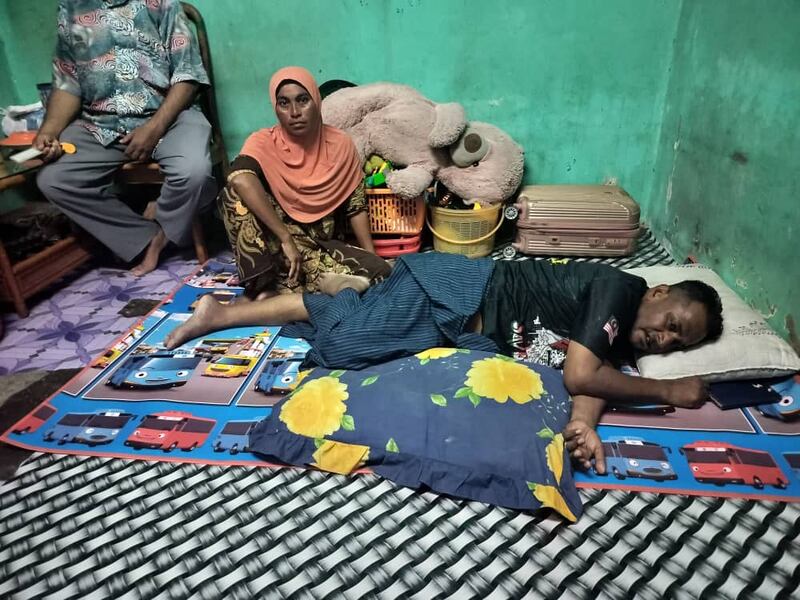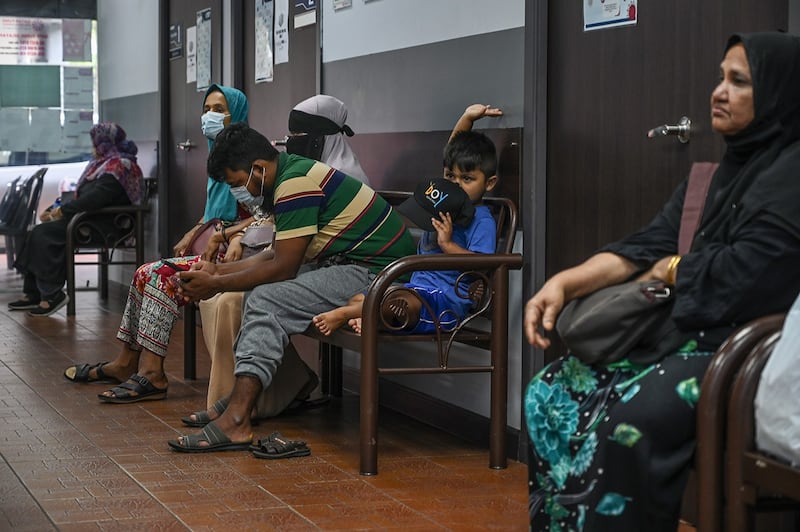If it wasn’t for the generosity of Malaysia’s refugee community, things could have been a lot worse for Rohingya man Rashid Ahmad Abdul Kadir.
In January, the 35-year-old was struggling with pain so bad from gallstones that he could barely breathe.
“I was scolded by the doctor because he said I came too late and my organs had been damaged,” said Rashid Ahmad, who arrived in Malaysia from Myanmar’s Rakhine state in 2012.
The cash-strapped father of two only got through the ordeal after his friends raised 3,800 Malaysian ringgit (U.S. $800) for his operation at a public hospital.
“I could not afford the amount for surgery on my own,” he told BenarNews.
Malaysia’s nearly 200,000 refugees already have it tough because they are not legally allowed to work, many live in appalling conditions, and their children are often denied education. But a little talked about concern is their access to affordable healthcare, which could make the difference between life and death.
Because Malaysia is not a signatory to the 1951 Refugee Convention, refugees are viewed as illegal migrants and must pay much higher foreigners’ rates at government hospitals and clinics.
That puts an enormous financial strain on people like Rashid Ahmad, who earns a meager living working odd jobs such as washing dishes or cutting grass, with no rights or social security benefits.
After being discharged from hospital in February, Rashid Ahmad had to skip the daily dressing of his wounds at a nonprofit medical clinic because, even at a subsidized price, he could not afford it.
“I cannot move on my own. Trips to the clinic also need money,” said Rashid Ahmad, who lives in Ampang near Kuala Lumpur.
Debbie Stothard, founder of the Alternative ASEAN Network on Burma, an advocacy group, described Malaysia’s policy of denying refugees access to affordable public healthcare as “illogical and irresponsible.”
“We are preventing Rohingya and other refugees from contributing to Malaysian society,” she told BenarNews. “To ensure they can contribute, they must be healthy enough. It is just that basic.”

Some 186,490 refugees, most of whom are ethnically Rohingya from Myanmar, are registered in Malaysia with U.N. High Commissioner for Refugees, or UNHCR.
Healthcare is the No. 1 concern for most of them, said U.S.-based Rohingya activist Norhayati Ali during a recent visit to Malaysia.
Refugees and asylum seekers with UNHCR cards are charged 50% of the foreigners’ rate at public healthcare facilities. But for those who are undocumented, the fees can be 40 times the cost charged to Malaysians, according to advocacy groups.
Otherwise, refugees have access to subsidized care at 15 nonprofit health clinics across the country. However, these offer only basic healthcare that does not require hospitalization or specialist treatment.
Ahmad Ikram, general manager of a nonprofit clinic in Kuala Lumpur, said it was not uncommon to hear of cases where refugees could not pay for treatment.
“Some refugees have had to stay in the hospital even though they should have been discharged because they could not pay the medical costs. In one case, a patient ran away because he could not afford to pay before being discharged,” he told BenarNews.
At his clinic, Ikram said he most commonly saw refugees for conditions like diabetes, hypertension and skin diseases. He offers only general treatment, vaccinations and family planning consultations.
Typically, his referrals to hospital were cases involving preterm births, respiratory diseases, infections, gastrointestinal issues and surgical procedures.
“The number of refugees seeking help at the clinic is normally between 70-80 per day, but when authorities conduct raids around here, those numbers could halve,” he said.
“When we ask why, they say they are afraid of getting caught while seeking treatment and being sent back home.”

Home Minister Saifuddin Nasution Ismail told Parliament in June last year that Malaysia was establishing a comprehensive database on the number of refugees and asylum seekers in the country.
This would help the government tailor policies towards them, including for healthcare, he said.
In the meantime, Rohingya community leaders like Rafik Shah Mohd Ismail are calling on Malaysians to show compassion.
“Everyone gets sick. For refugees, whether registered with UNHCR or not, hospital bills are expensive,” he told BenarNews.
“A deposit is required before surgery is performed; these can range from around 1,500 ($317) ringgit to 5,500 ringgit ($1,160).”
While the community tries to help out with hospital fees when possible, it is often too expensive, said Ismail, who is based in Selayang, Selangor state.
“We’ve encountered situations where babies remained hospitalized because their parents couldn't afford the bills,” he said.
BenarNews is an RFA-affiliated online news organization.
